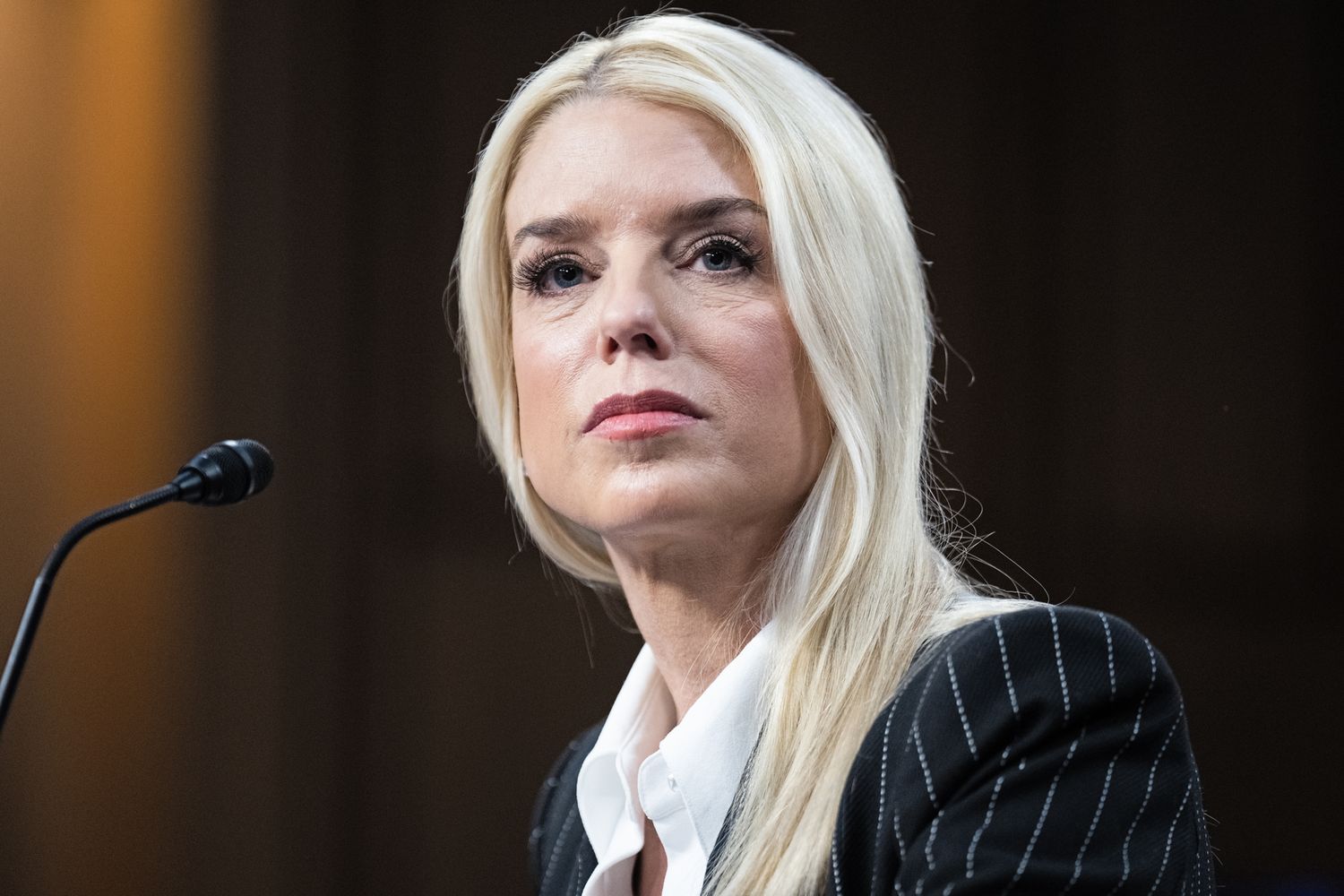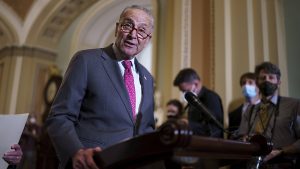The Senate Judiciary Committee has opened a detailed examination into whether senior officials at the Department of Justice (DOJ) improperly intervened to halt an FBI inquiry connected to the Clinton campaign’s funding of the Steele dossier—a politically charged document that became one of the most controversial elements of the 2016 election cycle and the subsequent investigations targeting Donald Trump. The review, led by Chairman Senator Charles E. Grassley of Iowa, is rooted in newly disclosed internal communications and whistleblower testimony suggesting that DOJ leadership may have discouraged or rejected legitimate investigative steps by FBI agents tasked with examining possible financial misreporting by the Democratic National Committee (DNC) and Hillary Clinton’s 2016 presidential campaign.
At the center of the committee’s inquiry are email exchanges from June 2019 involving Richard Pilger, then a senior official in the DOJ’s Public Integrity Section, and J.P. Cooney, who at the time served as a prosecutor for the U.S. Attorney’s Office in the District of Columbia. The communications—released publicly by Grassley—appear to show Pilger and Cooney pushing back against an FBI agent who raised concerns about what he referred to as the “unambiguous concealment” of payments used to fund opposition research through the firm Fusion GPS. This research ultimately included the work of Christopher Steele, a former British intelligence operative who compiled a dossier containing allegations about Donald Trump and Russia. The dossier was later widely discredited but played a role in multiple government investigations.
According to the whistleblower’s statements and supporting documentation provided to the Senate, the FBI agent who sought authorization to pursue investigative steps believed that the DNC and Clinton campaign improperly reported millions of dollars in payments that, in reality, funded political research rather than legal services. In internal messages, the agent said he faced what he interpreted as resistance, pressure, and thinly veiled threats from DOJ officials who questioned his motives and discouraged him from pursuing the matter.
The agent, whose identity remains protected due to his whistleblower status, wrote that in his many years of service he had never encountered such a dismissive or aggressive response from DOJ leadership. The Senate Judiciary Committee is now reviewing the circumstances surrounding these interactions, including whether the agent’s concerns were dismissed on legal grounds or whether officials improperly interfered for reasons that exceeded standard prosecutorial discretion.
Grassley has argued that the previously unreleased emails raise serious concerns about consistency in DOJ decision-making, particularly because both Pilger and Cooney later played central roles in the “Arctic Frost” investigation—an expansive DOJ effort examining post-2020 election issues and actions attributed to former President Donald Trump. Arctic Frost ultimately became part of a broader special counsel investigation led by Jack Smith, culminating in charges against Trump relating to alleged election interference.
Grassley contends that the same officials who rejected inquiries about the Clinton campaign’s financial disclosures appeared eager to pursue the Arctic Frost investigation, suggesting—at least in his view—a disparity in the DOJ’s investigative posture depending on the political direction of the allegations. In letters sent to Attorney General Pam Bondi and FBI Director Kash Patel, Grassley requested additional records, including unredacted emails, memoranda, and internal evaluations that relate to the FBI’s 2019 efforts to scrutinize the Clinton-DNC payments to Perkins Coie, the law firm that retained Fusion GPS on behalf of the campaign.
The core issue at the heart of the Senate committee’s review centers on how those payments were reported. The Clinton campaign and the DNC publicly recorded more than $1 million in payments to Perkins Coie as “legal services,” even though a significant portion of those funds was directed to the compilation of political opposition research. Critics argue this amounted to a misrepresentation of campaign spending, while defenders maintain that the payments were routed through a law firm and therefore fell under permissible classifications. Ultimately, the matter led to civil—not criminal—penalties: in 2022, the Federal Election Commission fined the Clinton campaign $8,000 and the DNC $105,000 for misreporting the expenses.
Grassley’s ongoing investigation seeks to determine whether the DOJ’s decision not to pursue a criminal inquiry was legally sound or politically influenced. The emails he released include an exchange dated June 21, 2019, in which Pilger criticized the FBI agent’s efforts, asserting that the agent was displaying “bias” and a “rush to judgment.” Earlier communications show Cooney advising the agent that opening a false-reporting case would be difficult, in part because Fusion GPS was technically retained by the campaign’s legal counsel rather than by the campaign directly. Cooney argued that proving willful misreporting—a key requirement for criminal prosecution—would be legally challenging under those circumstances.
These internal deliberations, though not unusual in the context of prosecutorial decision-making, are now central to the Senate inquiry due to the allegations of unequal treatment. Grassley has asserted that the DOJ’s handling of the Clinton-DNC case, compared with its later aggressiveness in investigating Trump, demonstrates an inconsistent or politically selective application of federal law. The committee’s goal is to assess whether DOJ officials deviated from standard procedures or engaged in conduct that undermined the appearance or reality of impartial justice.
The Senate’s review also encompasses the larger context of the Steele dossier and its role in subsequent government actions. The dossier’s claims—largely unverified or later disproven—were cited by the FBI as part of the rationale for opening a counterintelligence investigation into the Trump campaign in 2016. Critics have long argued that the dossier should never have been considered a credible basis for surveillance or investigative steps, while others maintain that the FBI’s broader investigative concerns extended well beyond the dossier itself.
As the committee continues its work, its members are also requesting updated information from current DOJ leadership under Attorney General Pam Bondi. Bondi is tasked with responding to Grassley’s document requests and determining whether the actions of prior DOJ officials merit internal review, further transparency, or corrective measures. In his communications, Grassley has emphasized the need for complete access to all relevant documents, arguing that the public deserves clarity about whether officials followed appropriate standards or acted in ways that could undermine institutional integrity.
For now, the Senate Judiciary Committee’s inquiry remains focused on gathering complete records, interviewing relevant personnel, and assessing whether federal officials acted within the bounds of law and policy. The investigation does not draw final conclusions but seeks to build a fuller factual record about how and why certain prosecutorial decisions were made. Whether the review will lead to further action—such as referrals, policy reforms, or additional oversight hearings—remains to be seen.
What is clear is that the committee views the matter as a significant test of DOJ transparency and impartiality. In a period marked by deep political division and heightened scrutiny of federal law-enforcement institutions, the Senate’s review aims to determine whether past decisions were driven by legal reasoning alone or influenced by political considerations. As more information becomes available, Attorney General Pam Bondi and other current DOJ leaders may face further questions about how the department intends to address any substantiated concerns about prior conduct, ensure consistent application of federal law, and restore public confidence in its processes.
The outcome of this inquiry will likely shape future discussions about campaign-finance enforcement, oversight of politically sensitive investigations, and the ongoing challenge of maintaining institutional neutrality in highly charged political environments. For now, the Senate’s work continues, with both lawmakers and the public awaiting a fuller accounting of the decisions that shaped one of the most contested investigative chapters of the last decade.

Emily Johnson is a critically acclaimed essayist and novelist known for her thought-provoking works centered on feminism, women’s rights, and modern relationships. Born and raised in Portland, Oregon, Emily grew up with a deep love of books, often spending her afternoons at her local library. She went on to study literature and gender studies at UCLA, where she became deeply involved in activism and began publishing essays in campus journals. Her debut essay collection, Voices Unbound, struck a chord with readers nationwide for its fearless exploration of gender dynamics, identity, and the challenges faced by women in contemporary society. Emily later transitioned into fiction, writing novels that balance compelling storytelling with social commentary. Her protagonists are often strong, multidimensional women navigating love, ambition, and the struggles of everyday life, making her a favorite among readers who crave authentic, relatable narratives. Critics praise her ability to merge personal intimacy with universal themes. Off the page, Emily is an advocate for women in publishing, leading workshops that encourage young female writers to embrace their voices. She lives in Seattle with her partner and two rescue cats, where she continues to write, teach, and inspire a new generation of storytellers.









